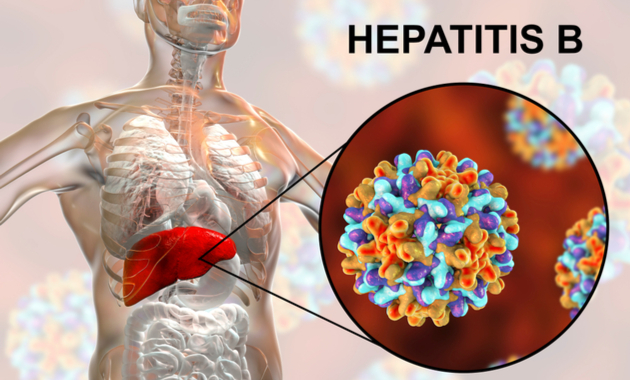Hepatitis B: Safeguard Yourself with Vaccination
Hepatitis B is a serious liver infection caused by the hepatitis B virus (HBV). Unlike Hepatitis A, which is a short-term illness, Hepatitis B can become chronic, leading to long-term health problems like cirrhosis (scarring) and liver cancer. The good news is that Hepatitis B is a highly preventable disease. Vaccination offers long-term protection and is the most effective way to safeguard yourself and your loved ones.
This article equips you with comprehensive knowledge about Hepatitis B, its transmission, symptoms, and most importantly, the power of vaccination.

Understanding Hepatitis B: Transmission and Risk Factors
Hepatitis B is primarily transmitted through contact with infected blood or bodily fluids. Here’s how it spreads:
- Sexual Contact: Unprotected sexual contact with an infected person is a major mode of transmission.
- Sharing Needles or Syringes: Sharing needles or syringes used for injecting drugs or medications is a high-risk behavior.
- Accidental Needle Sticks: Healthcare workers and others who may come in contact with needles or sharp objects contaminated with HBV are at risk.
- Mother-to-Child Transmission: Mothers with chronic Hepatitis B can transmit the virus to their babies during childbirth or breastfeeding.
- Close Contact: While less common, close contact with an infected person’s open wounds or sores can potentially spread the virus.
Risk Factors for Hepatitis B:
Certain factors increase your risk of contracting Hepatitis B:
- Unprotected Sex: Having multiple sexual partners or not using condoms during sex with an infected person significantly increases your risk.
- Men Who Have Sex with Men (MSM): MSM are at a higher risk due to increased potential for exposure.
- Intravenous Drug Use: Sharing needles or syringes is a high-risk behavior.
- Travel to High-Risk Areas: Areas with high rates of Hepatitis B infection, such as parts of Asia, Africa, and Eastern Europe, pose a risk to travelers.
- Healthcare Workers: Those who work in healthcare settings and may come in contact with infected blood or bodily fluids are at risk.
- Infants Born to Mothers with Hepatitis B: Mothers with chronic Hepatitis B can transmit the virus to their babies.
- People with Multiple Tattoos or Piercings: Getting tattoos or piercings with unsterilized equipment can be risky.
Recognizing the Signs: Symptoms of Hepatitis B

Acute Hepatitis B, the initial phase of infection, often goes unnoticed as many people experience no symptoms or mild, flu-like symptoms that can be mistaken for other illnesses. However, some common symptoms to watch out for include:
- Fatigue: This is the most frequent symptom, often described as an overwhelming tiredness that doesn’t improve with rest.
- Loss of Appetite: You may experience a decreased desire to eat or feel full quickly.
- Nausea and Vomiting: These can occur occasionally or more frequently.
- Abdominal Pain or Discomfort: You might feel a general discomfort or dull ache in your upper right abdomen (where your liver is located).
- Dark Urine: This can be a sign of bilirubin buildup in the blood, a waste product normally processed by the liver.
- Light-Colored Stools: This can occur due to reduced bile production by the liver.
- Jaundice: This is a yellowing of the skin and whites of the eyes, caused by bilirubin buildup. It’s a more advanced symptom.
However, the absence of symptoms doesn’t necessarily mean you’re not infected. Chronic Hepatitis B, which develops in some individuals, may not present any symptoms for years, potentially leading to serious complications before being detected.
Early detection through blood testing is crucial for effective management and preventing transmission.
The Potential Consequences of Untreated Hepatitis B
Leaving Hepatitis B untreated can lead to serious health problems, including:
- Chronic Hepatitis B: If the body doesn’t eliminate the virus within 6 months, it becomes chronic. This can lead to progressive liver damage over time.
- Cirrhosis: Chronic inflammation can cause scarring of the liver tissue, hindering its ability to function properly.
- Liver Failure: In severe cases, the liver can become progressively damaged and eventually stop functioning altogether.
- Liver Cancer: People with chronic Hepatitis B are at increased risk of developing liver cancer.
The Power of Prevention: The Hepatitis B Vaccine
The Hepatitis B vaccine is the cornerstone of prevention. It’s a safe and highly effective three-dose series that offers long-term protection against the virus. Here’s what you need to know about the vaccine:
- Who Should Get Vaccinated? The CDC recommends universal Hepatitis B vaccination for all infants, starting at birth. Additionally, adults at increased risk should consider vaccination, including:
- People who have multiple sexual partners or don’t use condoms consistently.
